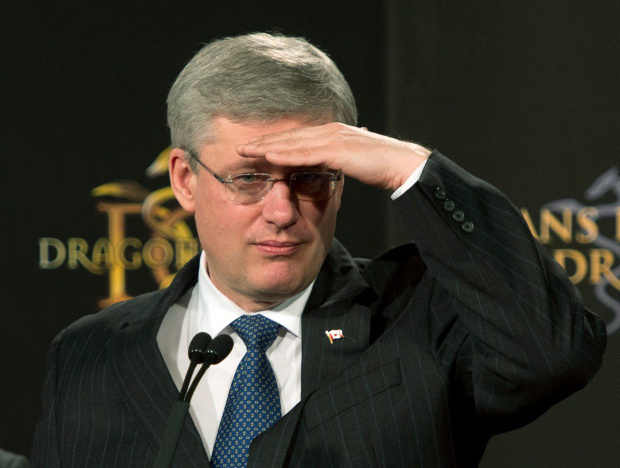Canada’s Conservatives will be the “perpetually dominant” ruling party this century because of a fundamental shift in society, says a new book by an eminent pollster and a political journalist.
According to the authors of The Big Shift, many people — especially the central Canadian “elites” who once set the national agenda — don’t realize how much the country has changed.
A coalition of influence and power has shifted to the West and Ontario suburbs, where the Tories are strong.
Waves of immigration, much of it from Asia, have brought conservative values.
And Quebec — with all the associated hand-wringing about national unity — no longer captures the nation’s attention like it once did.
The May 2, 2011, election that gave Prime Minister Stephen Harper a majority government was a “tectonic” shift in Canadian history, write the book’s authors, Ipsos Reid pollster Darrell Bricker and Ottawa journalist John Ibbitson. Ipsos Reid is the official pollster for Postmedia News.
And it’s just the beginning of a long hold on power, they predict.
“Something fundamental is happening,” they write.
“Politics in Canada is dividing along ideological lines, and those divisions will only grow sharper over time.”
“We believe that fortune favors the Harper government in the next election. But we don’t believe this is about the next election. We believe it is about the next decade, the next generation, and beyond.
“We believe that the Conservative party will be to the 21st century what the Liberal party was to the 20th: the perpetually dominant party, the natural governing party.”
The authors are keen observers of national politics. Bricker, president of Ipsos Reid, has been polling for decades and his surveys on political trends are regularly featured in stories by Postmedia News. Ibbitson is chief political correspondent for the Globe and Mail.
In an interview, Bricker said they wrote the book after witnessing many politicians, academics and journalists — they call them “Laurentian elites” — failing to understand the significance of the changes that led to Harper’s electoral success.
“The big point of the book is that the country you thought you knew doesn’t exist anymore,” said Bricker.
“All those values that you thought bound us from coast to coast — the Laurentian consensus — no longer apply to a country that’s changed so dramatically.”
“One party has recognized it, but that doesn’t mean there aren’t opportunities in this for other parties.”
The book stresses that the Conservatives will “not govern forever” and that there will be times when they are defeated by a “progressive coalition.”
But for that to happen, they argue, the opposition must beat the Tories “on their own turf” — by appealing to voters in the West and Ontario suburbs and by gaining the trust of immigrants.
Still, the book predicts that “certain political fundamentals have fallen into place that will ensure Conservative dominance for the foreseeable future.”
It began with Harper’s Tories, who are credited in the book for recognizing the “Big Shift” in Canada and for tailoring their policies to be in sync with that change.
“Harper’s greatest achievement has been to forge, over four elections, a modern Conservative coalition with the potential to become an enduring force in Canadian politics, one that will long outlast him,” write the authors.
Harper’s rise to power has been slow but steady in the past decade. He kept Paul Martin’s seemingly invincible Liberals to a minority in the 2004 election. Then he won Tory minorities in 2006 and 2008. And in 2011, in an election described by the book as a turning point in history, Harper won a majority.
“Harper and his closest advisers were the first to anticipate the tremendous political potential of the Big Shift,” the book says.
“He recognized that the West was transforming from a region of protest to an emerging centre of power.
“He saw the potential of winning away immigrant voters from the Liberals. He exploited the growing frustration of the suburban middle class in Ontario with a federal agenda that was more interested in expanding entitlements than in giving them a tax break. He saw that crime, whatever the statistics might say, was a lurking concern for many.”
The Big Shift: Conservatives poised for decades of power in Ottawa, pollster’s book says





























Laissez un commentaire Votre adresse courriel ne sera pas publiée.
Veuillez vous connecter afin de laisser un commentaire.
Aucun commentaire trouvé